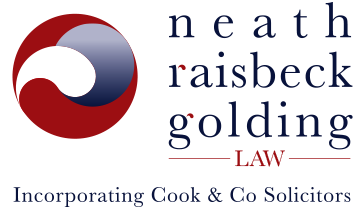What to look for when buying a leasehold property
Leasehold properties are very common in the Bristol market. There are two types of title: freehold and leasehold.
Leasehold properties usually apply to flats (but can sometimes apply to houses especially in Bristol although this seems to be rarer in other parts of England & Wales) where an old house has been converted into separate flats or a developer has built a block of individual flats. The house or building will then be owned by the Landlord as the freehold title and each Tenant will then ‘rent’ each individual flat from the Landlord by way of a long-term Lease. Landlords can vary; they can be individuals, or a management company set up by the individual Leaseholders or a developer where it is a purpose-built block of flats
The Freeholder/Landlord is normally responsible for the maintenance and upkeep of the communal areas (for example, stairs, hallways, driveways etc.), the roof and foundations of the building (essentially the structure of the building), redecoration of the exterior and common interior of the building and, also, insuring the building. It is also a legal requirement now for buildings used for residential purposes but where there are communal areas to have fire and asbestos risk assessments carried out.
In order to do all of this, the Landlord will require each flat-owner/Tenant to pay an annual service charge which the Tenant will be obliged to do under the Lease. The Landlord does have to account to the Tenant for all outgoings on the property but, if there is no reserve or ‘sinking’ fund, the Landlord has the right to demand each Tenant’s fair contribution to any emergency repairs, for example caused by flooding, which could mean a large lump sum payment in one go on top of your service charge payments.
The Tenant is also often obliged to pay the Landlord an additional annual fixed sum, known as ground rent. At first, this can often seem quite a low amount, for example, a fixed amount of £25 every year. However, it is extremely important to check how this is reviewed as a lot of Leases will provide for periodic increases, for example, for this to double every 10 years. Over a 999-year lease, there would be 99 reviews and the ground rent would already be at £800 per annum by the 5th review. As you can see, this is unsustainable over the term of the Lease.
This would then also definitely come up when you came to sell the property and you would strongly be advised to ask the seller to enquire of the Landlord whether they would agree to vary this provision and change the review method for the ground rent to increase, perhaps in line with the RPI.
If the Freeholder does not agree to vary the Lease, this could adversely affect future saleability of the property.
The Lease will also always contain other obligations known as covenants, for example:
- The restrictions on alterations and the requirement to obtain the Landlord’s consent;
- You would not be allowed to assign, sublet or part with possession of part only of the property;
- The repairing/decorating obligations;
- Restrictions on keeping pets at the property.
With regards to obtaining the Landlord’s consent, most Landlords would also normally charge a fee for this.
Most Leases will also contain a forfeiture clause i.e. . in the event that you fail to observe your obligations under the lease (which includes the payment of ground rent and service charges) the Landlord may re-enter the property and bring the Lease to an end. This would mean that you would lose the property unless you were able to satisfy a court that you should be granted relief from forfeiture.
The only recourse Tenants have if they do experience problems with their Landlord is to refer any dispute to the First-tier Tribunal (Property Chamber) which is an independent body set up by the Government to determine such a dispute. Our Property Litigation Team would be happy to answer any questions you have if you are currently in a dispute.
It is therefore extremely important that you engage an experienced, competent lawyer to check all of this for you thoroughly and then provide you with a clear, comprehensive report detailing everything that you need to be aware of before committing to the purchase and exchanging contracts.
Our Residential Property Team would be happy to provide a quotation if you are selling or purchasing a freehold or leasehold property, so please do not hesitate to contact us.

Sarah Turner:
Chartered Legal Executive
Sarah is an expert in all matters relating to residential conveyancing and has over 21 years’ experience.
